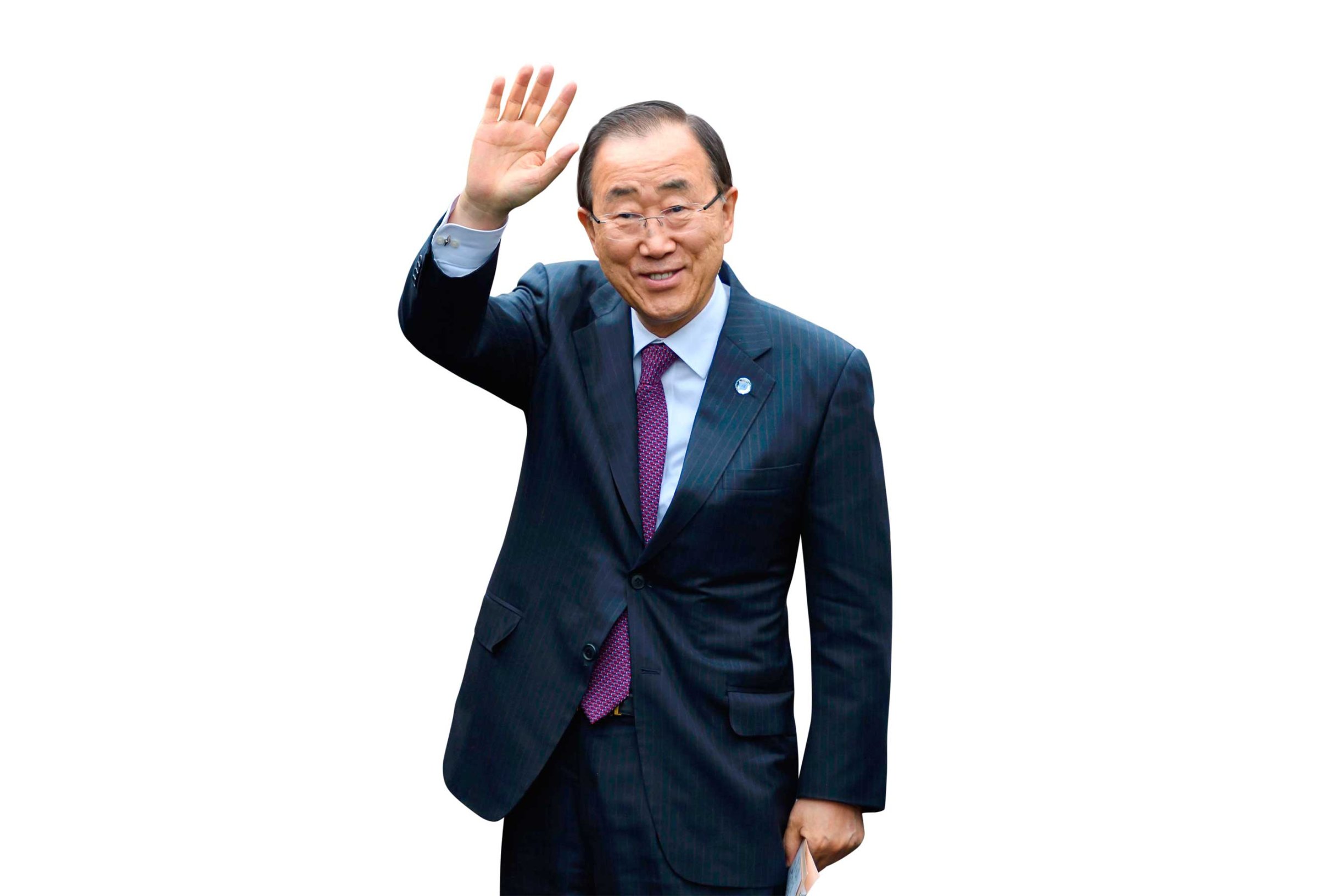
The President of your home country of South Korea, Park Geun-hye, has been impeached. Do you have any interest in running for President?
I will have to discuss with some leaders of Korean society what and how I can contribute to my motherland. Korea has achieved democratic institutions and democratic maturity and also economic success. I’m confident that with the sense of maturity and wisdom and resilience, Korean people will be able to overcome this current crisis as soon as possible.
We seem to be living in a new age of nationalism. Where does that leave the U.N.?
When member states are divided, the U.N. cannot function properly. When Security Council members are united, they have been able to address the issues protecting international peace and security. I’m concerned about this growing trend of nationalism in many, many parts of the world. We are living on, after all, a very small planet. There is not much meaning at this time to the geographical borders or individual national regulations. We are going through such a rapid, transformative process of globalization that we have to act as one human being. We have to act as a global citizen.
How should those who believe in multilateralism and globalism make the case to those who are skeptical?
Multilateralism sometimes brings more complicated processes in decisionmaking. That may frustrate the people. It’s not like one national system, which may be applied immediately and make even a faster decision. It may take a longer time than expected, but we have to nurture this process, nurture multilateralism, because we are living in a tightly interconnected world.
In a world where antidemocratic movements are on the rise, is there a danger the U.N. could be used as an antiliberal tool?
The U.N. has been working with all different Administrations, from Republican to Democratic. For over 71 years, the U.S. has been playing a crucially important role as a leading member of the U.N. I am confident that under the leadership of President-elect Donald Trump, we will be able to see that kind of very smooth and collaborative relationship.
You’ve said disarmament is facing a crisis.
I’m deeply concerned about the lack of progress in the global disarmament process. President Obama made in clear in 2009 in his very famous address in Prague that he really wanted to make this world free of nuclear weapons during his lifetime. Nothing has been moving. Our aim should be the complete elimination of nuclear weapons on this earth, particularly the U.S. and Russia, who hold 95% of all nuclear weapons.
What is your greatest regret on leaving office?
I have been really trying to resolve all these crises: Syria and Libya, South Sudan and the Central African Republic. Five million people have become refugees, and 15 to 16 million people inside Syria need humanitarian assistance. Of course, this is sort of a collective failure. But I deeply regret that I have to leave this to my successor.
What advice do you have for your successor?
I’m encouraged that the General Assembly has elected António Guterres. It is a very delicate process of coordinating with 193 member states. It would be important that the General Assembly and Security Council change, improve, the decisionmaking process. There is a hugely misunderstood misperception that often consensus is regarded as unanimity.
More Must-Reads from TIME
- Why Trump’s Message Worked on Latino Men
- What Trump’s Win Could Mean for Housing
- The 100 Must-Read Books of 2024
- Sleep Doctors Share the 1 Tip That’s Changed Their Lives
- Column: Let’s Bring Back Romance
- What It’s Like to Have Long COVID As a Kid
- FX’s Say Nothing Is the Must-Watch Political Thriller of 2024
- Merle Bombardieri Is Helping People Make the Baby Decision
Contact us at letters@time.com